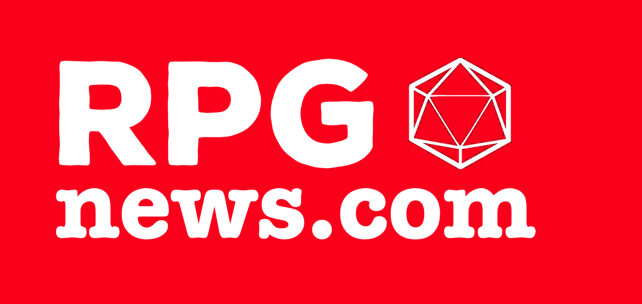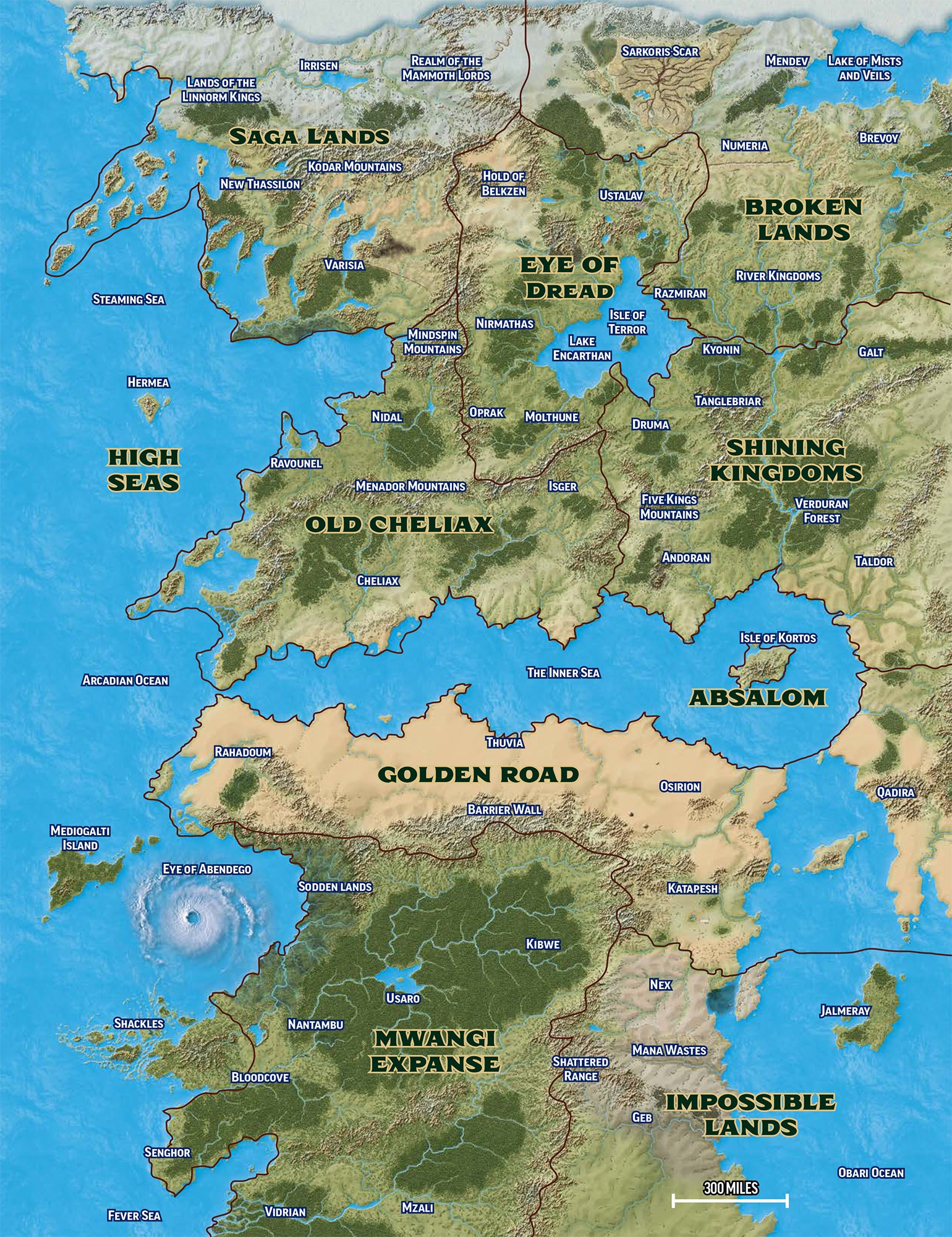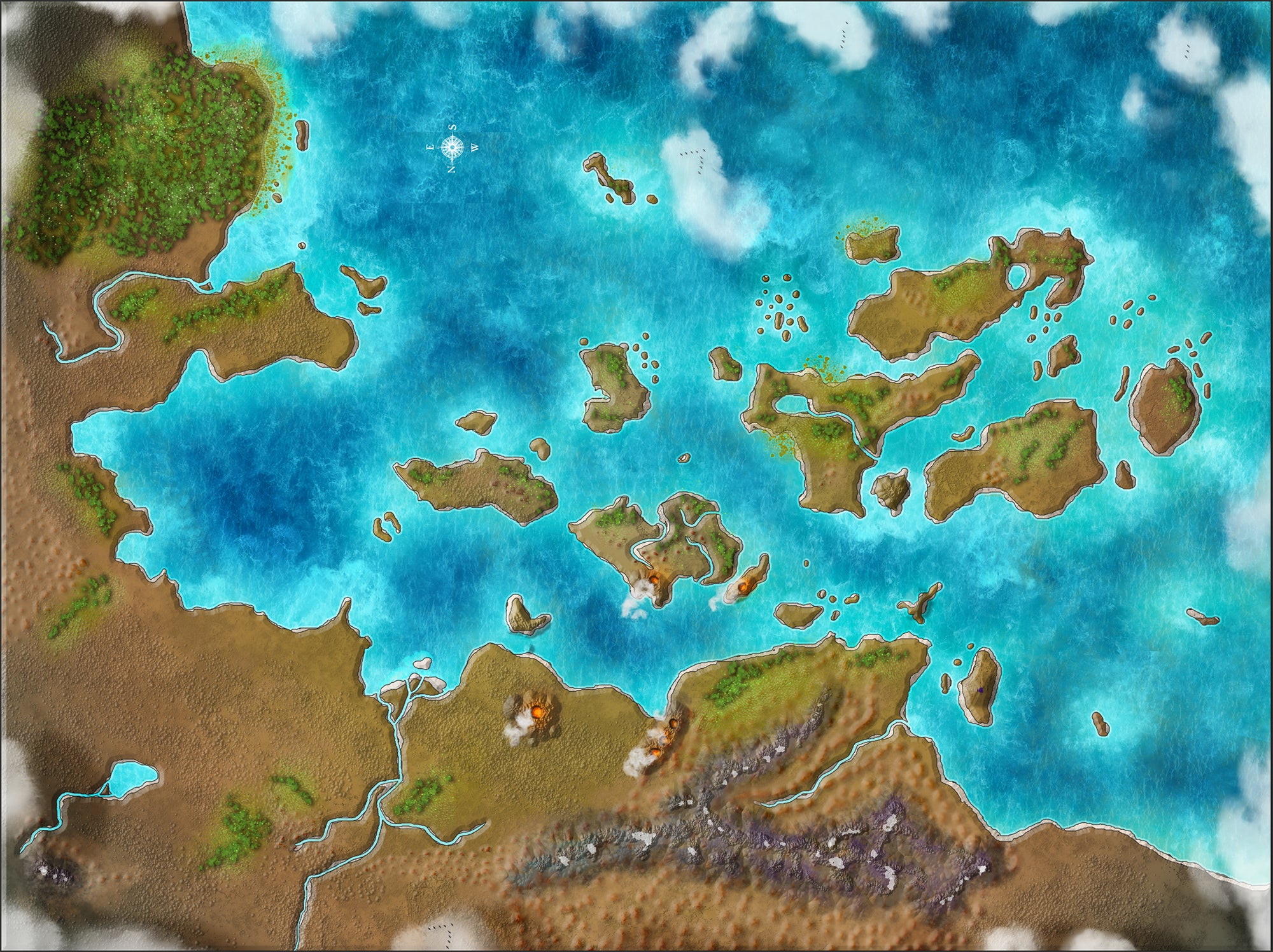As Lost Omens lore solidified early in Pathfinder’s first edition, the distant islands of Iblydos appeared briefly and rarely—often just a mention listed among other realms or an apocryphal sidebar pondering the origins of minotaurs. As a reader, I could tell Iblydos wanted to evoke classical Greek culture and myth, yet there was precious little to find. Thankfully, I didn’t just get to read about Iblydos; I wrote the gazetteer for Aelyosos, a major port city and fans’ first window into what makes this archipelago special. And now a decade later, we’ve returned in a big way: the Myth-Speaker Adventure Path, a mythic campaign for 1st-level characters!
If you’ve boosted your own Lost Omens Lore proficiency over the years, you might already be familiar with Iblydos. If not, don’t worry! Let me share some trivia to catch you up and get excited.
Classical Inspiration, not Replication
I mentioned before that classical Greek myth and history inspired Iblydos, so are we getting stats for Zeus? Not quite like that. When pitching and developing Iblydos, I considered what concepts and themes make ancient Greece exciting before considering how those ideas might manifest on Golarion—especially in a way that integrates with surrounding lands Vudra, southern Casmaron’s coast, and the Obari Crossing sailing route.
So what might you find?
- City-States: Much as Athens, Sparta, and others tried, nobody united classical Greece for long. For much of its history, myriad city-states jostled for influence and even hegemony. Likewise, nine major city-states have ruled Iblydos for centuries, with at least one having collapsed dramatically in the Age of Lost Omens. Some city-states feel strongly Greek-inspired, and that means plenty of other city-states break the mold in exciting ways.
- Hubris, Hospitality, and Metamorphosis: Flip open Bulfinch’s Mythology to a few random myths, and you’ll inevitably find some combination of a mortal being braggadocious, a god in disguise being inadvertently snubbed, and that god then transforming the mortal into something ironic. Arachne’s a classic example, and Baucis and Philemon are iconic counterexamples. Iblydos has no shortage of transformation and cautionary tales, even shaping some of the recommended ancestries for this campaign—including awakened animals, beastkin, and more! You’ll also find these themes echoing throughout Myth-Speaker’s narratives.
- Mythological Creatures: Some of the oldest Pathfinder lore credits Iblydos as the birthplace of myriad creatures like harpies and minotaurs. If there’s a prominent Greek myth about it, the creature’s likely making at least one appearance. In fact, cyclopes play a major role in most cities, having joined forces with humanity ages ago.
- Glory: That many fearsome creatures require equally courageous heroes! Homeric heroes chased after kleos, the kind of glory that comes from doing amazing things and ideally being immortalized in stories. Even if the average Iblydan doesn’t intend to wrestle a hydra, they still strive toward excellence in their chosen craft, profession, or other pursuit.
- Demigods: Classical myth boasted more than a handful of immutable deities. The Olympians, titans, and sundry other gods often philandered with mortals, resulting in a host of demigods. Over time, Greek myths and religion evolved and became regionally personalized, such as Artemis of Delphi diverging from Artemis of Ephesus (causing fandom battles worthy of the modern internet). What really sang to me were these demigods and regional mystery cults, each a unique yet doomed to fade from memory eventually. How might Iblydos achieve that same flavor?
Myth-Speaking
And that’s where myth-speaking arose. Iblydos doesn’t have local, full-power deities like Desna, Shizuru, or Kazutal. Instead, most Iblydans revere hero-gods—local demigods who were born mortal but obtained mythic power. When a mortal shows exceptional promise, a city’s cyclopes invite them to join a divinatory ritual called myth-speaking. With their magical foresight, the giants prophesy what great deed the mortal might achieve. If the mortal follows through and succeeds, they attain mythic power like the rules you’ll find in War of Immortals. Those same hero-gods grant spells for a lifetime or three before passing away, making room for new hero-gods.
At least, that’s how it’s worked for millennia. The Age of Lost Omens undermines cyclopean prophecies, and myth-speaking has become less reliable each year. At this point, Iblydos would experience a record scratch double-take worthy of an Adventure Path if approximately four player characters were to attain mythic power all at once.
Oh hey, did you hear the Myth-Speaker Adventure Path is a mythic campaign for 1st-level PCs?
Yep, even though your characters won’t start the game with mythic power, they’ll attain it during the first volume! From there, they’ll navigate the political excitement that comes from new hero-gods on the scene, wrestle with the mythic power coursing through their bodies (because their bodies weren’t made for so much energy), and unravel the strange circumstances that led to them being the latest additions to Iblydos’s dwindling pantheon. Expect monster-slaying, mythic problem-solving, and voyages throughout the islands (and into realms where no simple ship would sail).
To help get the ideas churning, check out the Myth-Speaker Player’s Guide, a free download full of setting lore, new backgrounds, character design tips, and more spoiler-free content.
Set sail!
John Compton
Lead Developer
Read more at this site


